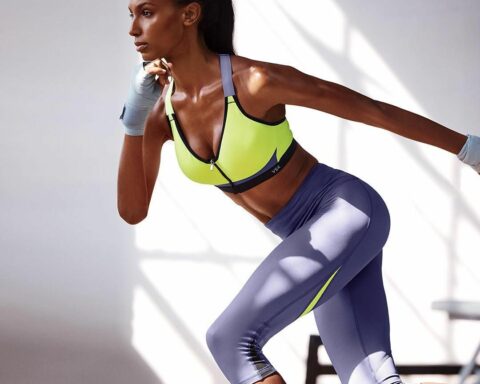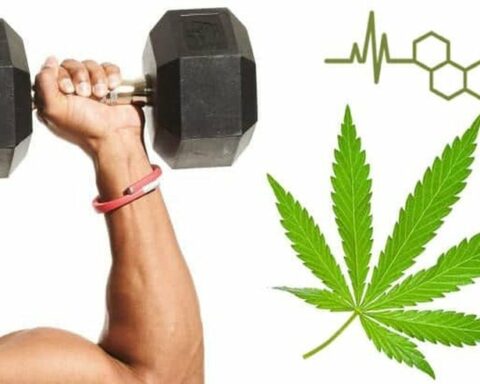To optimize your performance during a workout, prevent muscle damage, and enhance post-workout recovery, choosing the right foods matters.
Although taking supplements such as creatine often helps people perform better when they go for workouts, the foods they eat equally matter. A diet is significant for boosting a person’s performance and for recovering faster after a workout. In fact, some foods are so good that they will prevent or minimize muscle damage, but others will only make the muscles’ condition deteriorate. Use this article to learn about all that matters when it comes to pre-workout food choices.
Why is pre-workout food choice a serious concern?
Probably you are wondering whether what you eat before going out for workout matters, and the simple, straightforward answer is yes; what you eat before working out matters. This is because workouts are physical exercises that engage the muscles. For the muscles to work and maximize performance, they must be properly energized. Thus, the choice of food matters and influences how much energy you provide your body with. Of course, the proportions and the ratios of the various macronutrients will vary. However, every person who works out needs each of the macronutrients discussed in the following section.
Macronutrient breakdown for workout
If you are to work out, maximize performance, minimize muscle damage, and enhance post-workout, you must take in the following macronutrients in your diet;
i. Carbs
If you are going to do well in your workout, you definitely need to make carbs part of your pre-workout nutrition. Carbs are the energy stores, and your body makes use of the very energy as you exercise. As you eat carbs, they are reduced to glucose, the simplest form of sugars. Glucose is stored in the form of glycogen in the muscle stores located in the liver and muscles, and this becomes useful during low and high-intensity exercises. However, how much glycogen you utilize during a workout will vary depending on the kind of exercise you undertake and how long you do it.
The muscle stores can only hold a limited amount of glycogen at ago. Thus, the energy you have will also depend on the carbs you take. Taking in carbs, especially before a workout, is a good way to boost the glycogen stores. As you work out more and more, you deplete the glycogen stores, which is why your productivity goes down. Some active people go on a carb-loading phase to boost their glycogen stores. This is a period of 7days of heavy carb intake.
ii. Protein
Protein is another macronutrient that you must include in your diet for maximum performance and enhanced recovery after a workout. Many athletes take inproteins prior to workouts and report improved performance and maximum post-workout recovery. One research even registered a significant anabolic response among athletes who would take whey proteins regularly before exercise, each dosage being 20g. It follows then that any form of workout can be enhanced by taking proteins, with or without carbs. Top benefits of proteins include enhanced muscle recovery, boosted muscle performance, elevated muscle strength, and heightened lean muscle mass and body strength.
iii. Fats
Athletes and people on short but high-intensity workouts often most of their energies from carbs. However, if you are going to engage in low-to-moderate intensity workouts but for longer periods, fats are the way to go, as these will help you yield maximum energy for your workout. And with such fat intake in your balance, you will experience boosted performance and improved endurance. In fact, athletes who take fat and go on log races can endure such workouts for the longest time.
Time your eating schedule and make it regular
It goes without a say that including fats, carbs, and proteins in your pre-workout performance will enhance your performance when you go working out. However, timing your eating schedule and keeping it as regular as possible helps you yield the most benefits from your nutrition and workout. Many people eat some 2-3hours before exercise, and this has proved so effective to them.
Besides helping you get the most in terms of food benefits, workout performance, and post-workout recovery, timing your eating schedule and sticking to it helps prevent stomach discomforts. If you were to eat a full meal loaded with fats, carbs, and proteins 30-45minutes before a workout, chances are that not all the food will be completely digested by the time you are working out. This contributes to your being uncomfortable, which is why you will not perform well in your workouts. If you choose to eat a few minutes before a workout, make the meal light, easy to digest, and in a very small proportion. Otherwise, eating 2-3hours before a workout is the best timing for pre-workout nutrition.
Pre-workout meal examples
The preceding section mentioned some quick reminders to keep in mind as you choose your pre-workout meals. All the same, the meals you choose and the proportions you do will depend on the nature of your workout. Pre-workout meals include;
- Meals for workout within 2-3hours or more; omelet and toast or a cup of smoothie. Roasted vegetables, brown rice, and lean proteins could equally be appropriate.
- Meals for workouts within 2hours; smoothies from mixed berries and bananas or oatmeal alongside sliced almonds could do well. You could also try butter preserves and whole-grain bread.
- Meals for workouts within an hour or less; for this category of pre-workout meals, be careful to take foods whose types and proportions allow easy digestion and minimize stomach discomfort. A piece of fruit such as an apple, a mango, or a banana would typically do. You could also try Greek yogurt or a wholesome ingredient nutrition bar.
Conclusion
Pre-workout nutrition is important as it informs how fast you will recover from workouts, how much your muscles will be damaged or protected, and how suited you will be to perform. While the golden rule talks about carbs, proteins, and fats, the amounts you take and the types you prefer depend on the intensity of the exercise and its nature. Eating 2-3hours before exercise is the best timing as this allows time for digestion and minimizes stomach discomfort.
- How Long Should You Bake a Boneless Chicken Breast? - April 19, 2024
- How HØJ Became the New High - June 10, 2023
- “Sahyog-Care for You”: Empowering Communities and Creating Lasting Change - June 10, 2023









